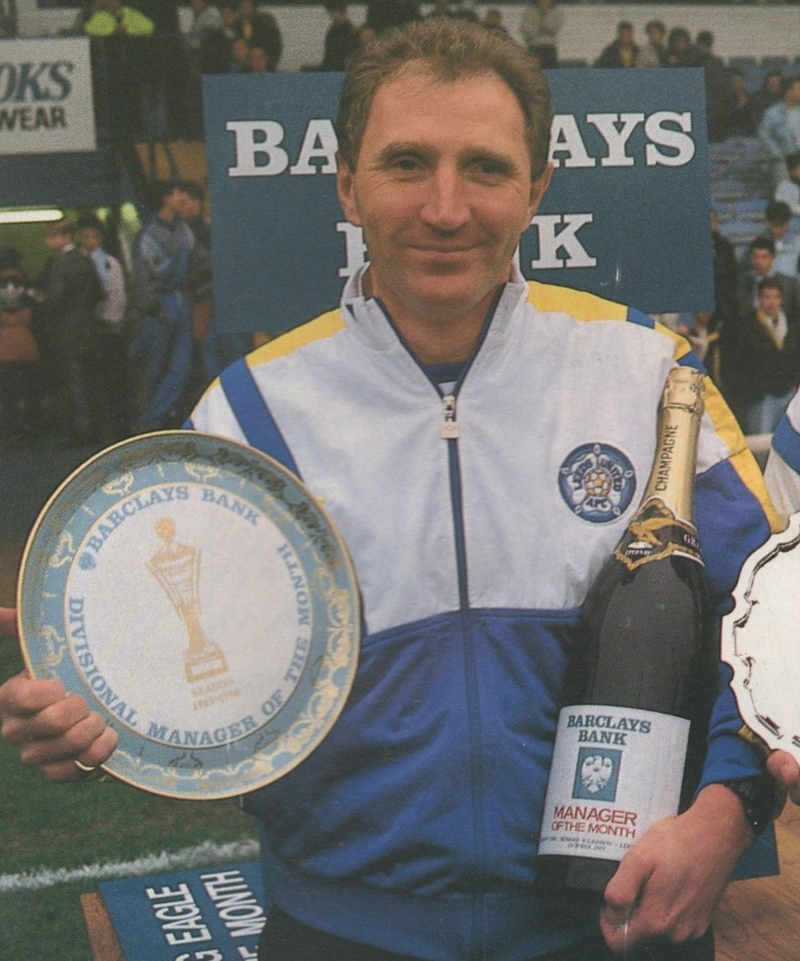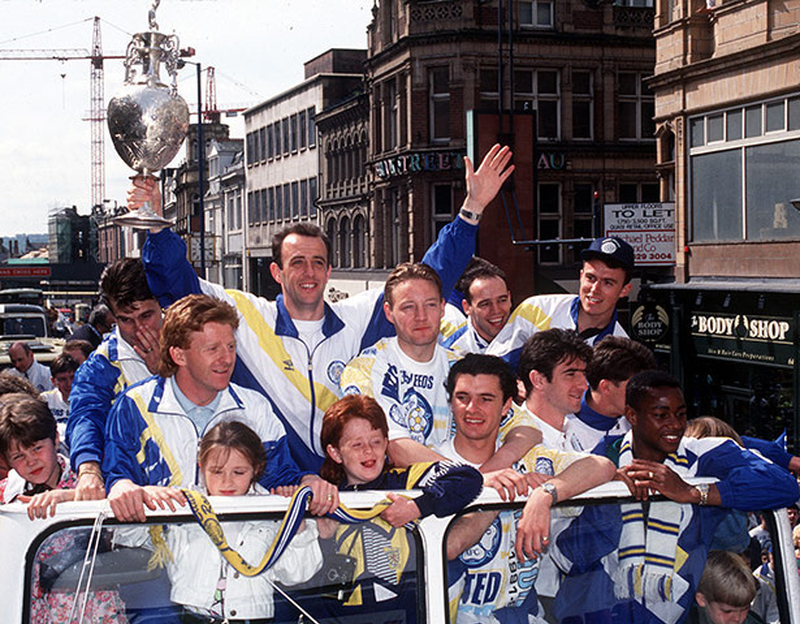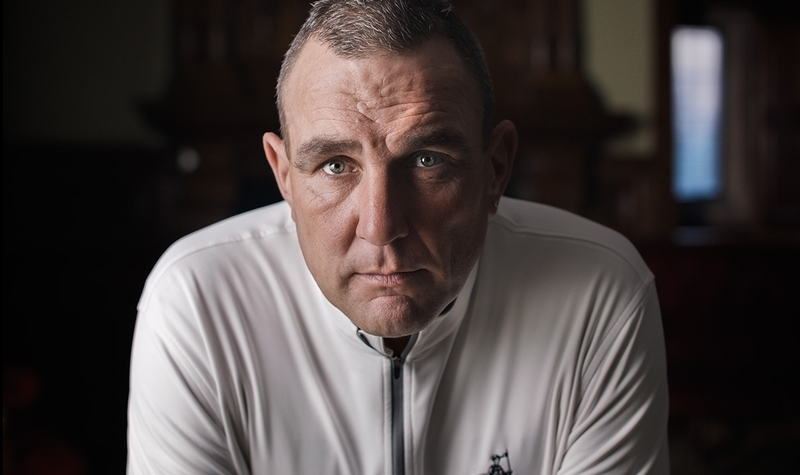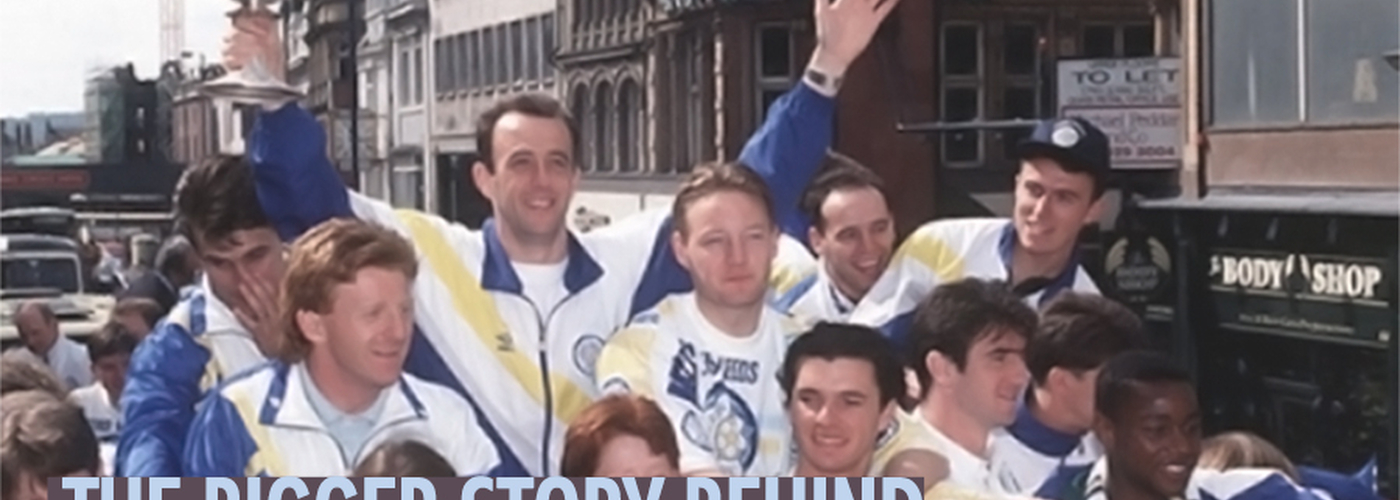We speak to Daniel Chapman, author of Do You Want To Win?
It’s a long-held belief in Leeds United circles that our club’s 1992 title success receives diminished recognition, given Sky Sport’s concerted attempt to airbrush anything that happened before they got their grubby mitts on football during that summer.
Essentially, anything that was transmitted on ITV prior to ‘Year Dot’ may as well be ancient folklore depicted in lost tapestry. But 25 years on, a new film and book – both titled ‘Do You Want To Win?’ – is set to put that right with a deep, loving embrace of what was a memorable period for the club and city.
In the interests of adequately commemorating the 25th anniversary of Leeds United’s ‘against-all-odds’ triumph, the book’s author Daniel Chapman - also editor of Leeds United independent supporters’ magazine ‘The Square Ball’ - decided it would be churlish to attempt to re-enact what already exists in the charming and grainy period nostalgia of VHS videos.

“It's hard to offer Leeds fans any better record of the 1988-1992 era than the season review videos,” Daniel claims. “Race For The Title 1989/90 feels almost unique because, more than a quarter of a century later, people still quote lines from it. Rather than replace those videos, we wanted to make something that would stand alongside them, with the emphasis on interviews with key people, rather than revisiting match highlights.”
“There's a bigger story behind the league title win than just the football matches, including Ces Podd's work in the community, Bill Fotherby's work in the city finding sponsors to bankroll Howard Wilkinson's plans, and players like Gordon Strachan and Vinnie Jones who arrived at Leeds feeling like they had something to prove. Rather than tell people what happened, we wanted to tell people how it happened.”

Indeed, Leeds United were coming out of a dark, post-Revie period, and the unforeseen nature of the title win merits some context, with the club still working hard to improve an image of hooliganism and racism when genial manager Howard Wilkinson was appointed in 1988.
‘Do You Want To Win?’ covers that 1988-1992 period, and as a title, neatly combines Wilkinson’s blunt pitch to a mismatched squad with a key psychological factor in the famous ten-year plan, which brought promotion to the top division, a title win ahead of schedule, and a top-rated academy bearing fruit with top-rated youngsters.
A lot happened in those four seasons that either isn't quite movie-worthy, or would require a whole other movie of its own.
Daniel describes how the film and accompanying book differ, while offering an insight into what is in store for the many Leeds United aficionados out there:
“The book is way longer! And it's based on a deep archive dive, while the film is built around interviews. There was a lot more room in the book for things there wasn't time for in the film, so I took advantage of that, and made it something of a nerd's paradise. A lot happened in those four seasons that either isn't quite movie-worthy, or would require a whole other movie of its own.”
While it is accepted that modern media rarely acknowledges Leeds United’s triumph, there remains a sense that even the club itself doesn’t adequately recognise its only period of tangible success outside the Revie era.
A failed restaurant project called ‘Howards’ and the East Stand’s ‘Gary Speed Suite’ – named posthumously in 2011 – are the only visible credits offered to a team whose success brought both trophies and money to the club, and left a legacy of the completed, modern Elland Road stadium. Something Revie never quite achieved.

Change was also ongoing around the city at the time. The major transformation of Leeds was sparked by the 1996 unveiling of Harvey Nichols, but Daniel explains that the title win coincided with the seeds of that change: “The book also includes background about what was going on in the city at the time,” he explains.
“While Leeds United were struggling to change their public image, the DHSS were struggling to convince their London staff to relocate to their new Quarry Hill headquarters in cold, dark Leeds.
1988 to 1992 was the start of a lot of what we see now as 'modern' Leeds — the city centre loop road, the Royal Armouries, the Carlsberg-Tetley merger, Victoria Quarter and the pedestrianisation of Briggate. Compared to October 1988, May 1992 was a very optimistic time for the city and the football club, and the book is about both.”

Launched as flagship projects for the Leeds International Festival, the book and the film pay faithful homage to a magical period and rightly celebrate a unique achievement, one that Daniel took great pleasure in documenting. “I made Howard Wilkinson laugh on at least four separate occasions, and I'll treasure that, because to me he's a truly significant figure in football, and I felt like I had to step up to his standards in his presence.
Vinnie Jones is another with presence. Gordon Strachan was a real pleasure to talk to; he told us that he loves meeting Leeds fans and reliving those days, and I really felt that in his company.”
‘Do You Want To Win?’ is a snapshot of a time that changed Leeds and changed Leeds United, even if we sometimes undersell it.
Perhaps it's a trait of Leeds fans that we can't talk about how brilliant something was without getting onto how badly it turned out.
“How many conversations about that era end up being about finishing the next season 17th, and the sale of Eric Cantona?” Daniel asks. “There always seems to be this massive 'Yeah, but...' about it, that I think is unnecessary. Perhaps it's a trait of Leeds fans that we can't talk about how brilliant something was without getting onto how badly it turned out. As a consequence of all that, neither the film or the book make any mention of what happened after the league was won. What Howard Wilkinson et al managed to do with Leeds United between October 1988 and May 1992 is a sensational story. Why not end on a high point, and enjoy the feeling of being there again?”
Absolutely right. So let’s party like it’s 1992.
Do You Want To Win? premieres Monday 24 April at Everyman Cinema as part of Leeds International Festival's Moving Image strand. Click for more information



